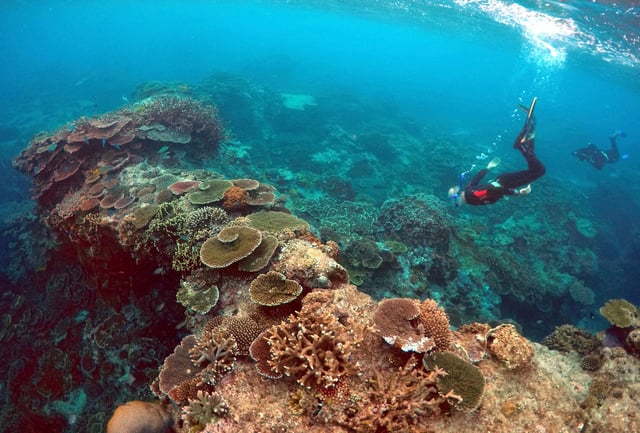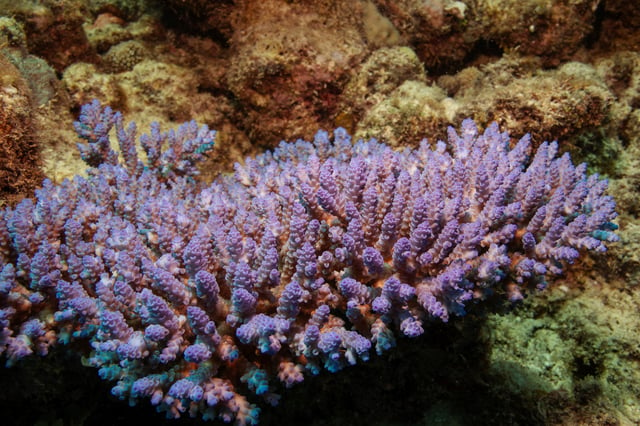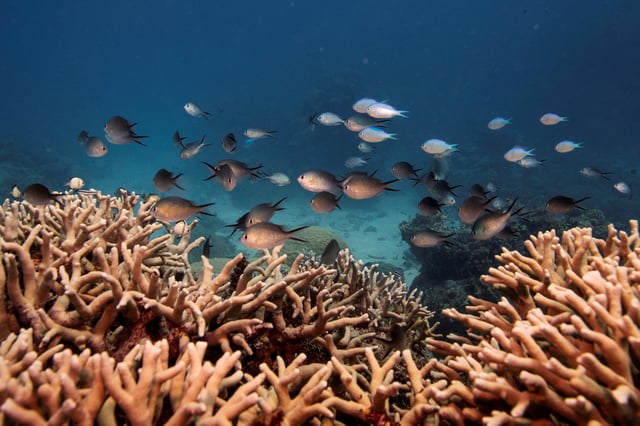Overview
- 2025 AIMS survey records largest annual drop in hard coral cover across the Great Barrier Reef, with regional declines of 25% in the north, 13.9% in the central zone and nearly 30% in the south.
- Climate-driven marine heatwaves triggered back-to-back mass bleaching events in 2024 and early 2025, compounded by cyclones, floods and crown-of-thorns starfish outbreaks.
- Despite plunges from record highs, overall coral cover now sits near long-term averages but shows rapid oscillations, signaling an ecosystem under mounting stress.
- Pockets of thriving coral communities persist, offering recovery potential if global warming is curbed through aggressive emissions reductions.
- The recent bleaching forms part of a global event affecting over 80% of the world’s reefs and has intensified calls for Australia to set a strong 2035 emissions target.



